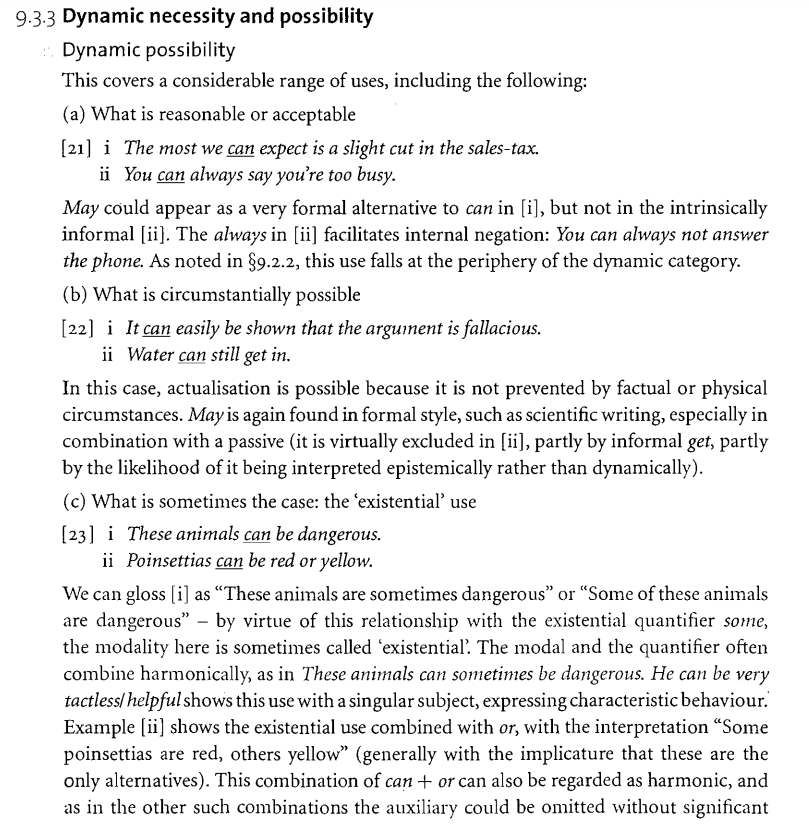This appears to be a case of inadvertant misattribution by the Original Poster. Here is the actual text and its context:
The Cambridge Grammar of the English Language, Huddleston & Pullum (2002, p. 198)
As can be seen, Huddleston & Pullum are of course saying that such a sentence is perfectly fine. However, they note that we're unlikely to see this kind of sentence with may in a formal academic text. Although may is more formal than can here, get in is a rather informal idiom, and this particular example would be ambiguous with may, because it would likely be interpreted as conveying epistemic instead of dynamic modality.
To see the difference between dynamic and epistemic meanings consider @Edwin Ashworth's examples (one of which modified):
- Epistemic: I don't like the look of that roof! Water may/might get in.
- Dynamic: The permeability of the membrane is intentional: oxygen may get in. Carbon dioxide may get in. Water may get in.
Notice that the text says absolutely nothing about deontic modality (i.e. any ideas about permission or anything like that).

